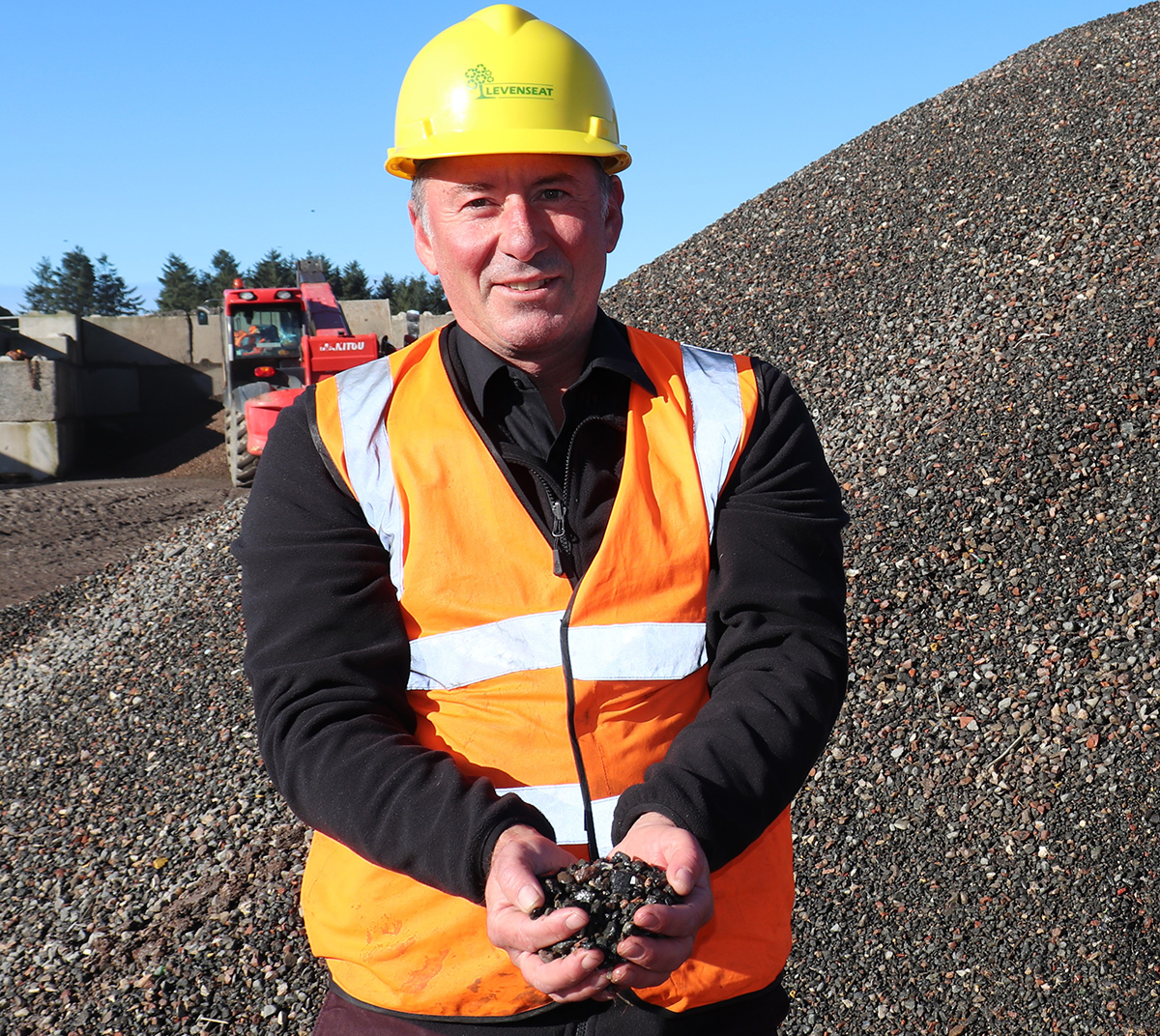
By Robert Green, technical director at Lanarkshire-based Levenseat, a company committed to developing new solutions to recover the best resources and provide customers with environmental and economic solutions
THE Glasgow COP26 conference has put a sharper focus than ever on climate change and the need for governments, business and individuals to do something about it. Numerous industries face major challenges over this issue, including construction which is a major contributor of CO2 emissions.
Across the UK, construction is estimated to have directly produced around 13.5 million metric tons of carbon dioxide emissions in 2019. While this was a slight reduction from 2018, construction-related CO2 emissions remain a substantial contributor towards global warming with growing pressure to accelerate the pace of change.
A report published in September by the National Engineering Policy Centre (NEPC) concluded that the UK construction sector needs to decarbonise more urgently in line with national emission reduction targets of 68% by 2030 and 78% by 2035. Decarbonising construction: building a new net zero industry, calls on both government and the construction industry to set challenging but clear targets to deliver the net zero transformation quickly and at scale. It calls for more holistic and efficient building designs, more recycling of building materials wherever possible, and the use of non-fossil fuel powered machinery to eliminate carbon emissions from building sites.
While the NEPC report highlights how the sector still has a way to go in its net zero journey, it’s also important to acknowledge the progress being made in a range of areas.
This includes the emergence of offsite construction methods being used across the industry where more designing, manufacturing, and fabricating building elements are produced in a factory before they are moved onsite. This approach transforms sustainability of the construction lifecycle by reducing waste. It also improves worker safety, quality standards and, importantly, can reduce costs.
We’re also seeing some of the major players in both Scottish and UK construction directly investing in green innovation to reduce emissions. JCB announced it was spending £100m on a project to produce highly efficient hydrogen engines within its machinery which is used on sites across the UK.
We’re also seeing the ongoing development of eco-conscious building materials support the drive towards greater sustainability within construction.
Levenseat was proud to introduce a new stream of accredited aggregate products providing a sustainable and lower cost alternative to virgin aggregates. The new products are made using incinerator bottom ash and have secured ‘end-of-waste’ status from Scotland’s environmental regulator SEPA making them safe to use on projects.
It’s also encouraging to see sustainability-focused collaborations between industry and government including one we’ve been proud to support, the Short Life Working Group, set up by Ivan McKee, the Scottish Government’s Minister for business, trade, tourism and enterprise. The group is comprised of representatives from Scottish Enterprise, the Scottish Futures Trust, and construction industry bodies. It was created to focus on addressing shortages of key materials with an ultimate aim of building resilience and self-sustainability within Scotland’s construction centre.
We need to build on this momentum and address barriers that are preventing a faster transition towards a low carbon construction sector. These include a reluctance from within the industry itself to embrace innovative, new materials on projects. Part of this is driven by a fear of change as well as the lack of incentives to embrace greener solutions.
This is where government has a further important role to play. It will likely require a carrot and stick approach involving new incentives for construction companies which can make demonstrable changes in their operations to reduce their carbon footprint. It may also be necessary to implement new forms of legislation that require companies to opt for more sustainable materials and develop greener practices where it’s possible to do so.
Glasgow has been at the centre stage of how we tackle the biggest issue of our time. The focus on addressing climate change will now increase in the wake of COP26 with the Scottish and UK construction industry undoubtedly continuing to innovate to ensure it contributes to this process. With further support from government in legislating to ensure more sustainable practices are embraced, we can succeed in delivering a greener industry and do it more quickly.








